MIT SCHOOL OF HUMANITIES, ARTS, AND SOCIAL SCIENCES
Media + Awards Digest | November 2021
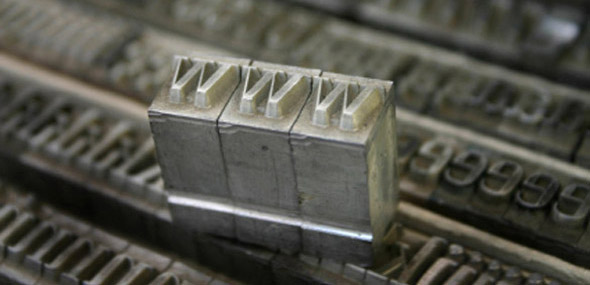
The Media + Awards Digest is a section of the Said and Done newsletter. Subscribe
Media Section | Awards Section
MEDIA DIGEST
STRENGTHENING DEMOCRACY
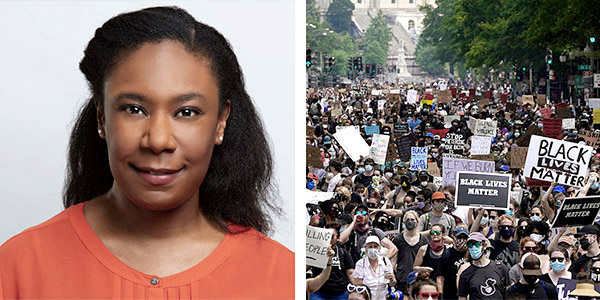 Journalist Kendra Pierre-Louis SM'16, Science Writing
Journalist Kendra Pierre-Louis SM'16, Science Writing
NIEMAN LAB
Time to change how the media reports on protests | Kendra Pierre-Louis SM'16
In an important commentary for democracy, acclaimed journalist Pierre-Louis describes why US media needs to change the way it reports on protests — and offers expert ideas on how to do so. She writes: "A 2010 study that analyzed 40 years of protest coverage...found that [major papers] depicted protests — even peaceful ones — as nuisances rather than as necessary functions of democracy. Why does this matter? The role of protest is to publicize grievances from people who typically exist outside of traditional power structures. It’s why freedom of assembly is written into the Constitution, along with freedom of the press. And the role of journalism is to hold powerful people and institutions accountable to the broader public. But that’s not possible if the way we report on protests is biased from the start."
Commentary | Pierre-Louis Website | Green Washed | Pierre-Louis NYT Climate Desk Archive
NATIONAL SECURITY
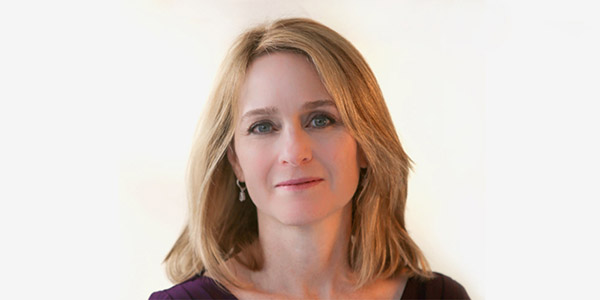
Kathleen Hicks, PhD '10, Deputy Secretary of Defense
FORTUNE
Greening the armed forces | Kathleen Hicks PhD'10
Hicks, PhD'10 (Political Science/Security Studies) is the US Deputy Secretary of Defense, responsible for advising the SecDef on global and regional defense policy and strategy. One of her goals is to move "all of the Pentagon’s 170,000 non-tactical vehicles from combustion engines to electric motors." Hicks, who "has spent the majority of her career in and around the Pentagon," says going green is not a choice for the armed forces: The auto industry is going electric, she notes, and if the DOD doesn’t adapt soon, it won’t be able to service its aging vehicles.
Story at Fortune
BLOOMBERG
Preparing the US military for climate-change conditions | Kathleen Hicks PhD'10
"Climate change is already affecting the combat readiness of the US military and providing opportunities for China to exploit, said Hicks, the US Deputy Secretary of Defense. "Climate change and extreme weather events caused by climate change affect everything from the number of days we can be flying in the air and training" to the ability to use military installations as sea levels rise or drought sets in, she said, noting that the effects of climate change also increase the military's disaster and humanitarian relief missions in the US and elsewhere.
Story at Bloomberg
SLATE
Will China really invade Taiwan? | M. Taylor Fravel
Fravel comments: “Those who say China can invade Taiwan conflate changed rhetoric with changed capability. It’s a misreading of China’s emphasis on 2027 as a milestone for PLA modernization.”
Story at Slate
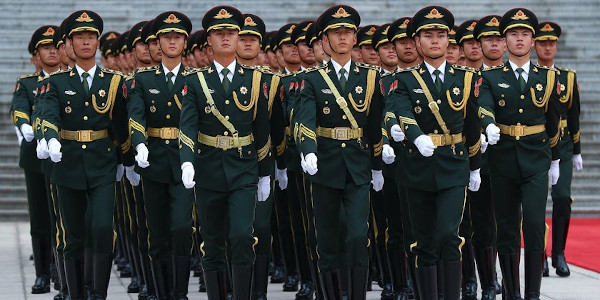
Chinese military members; photo via Lintao Zhang/Getty Images
WBUR
US general says China's hypersonic missile is 'close' to a Sputnik moment | Jim Walsh
Walsh, Senior Research Associate of the MIT Security Studies Program, joins host Scott Tong to discuss how the US views China's reported test of a hypersonic missile last summer.
Conversation at WBUR | Jim Walsh
FINANCIAL TIMES
China nuclear build-up: ‘one of the largest shifts in geostrategic power’ | Vipin Narang
Narang believes China is engaging in an “eye-popping” nuclear expansion because it thinks “the risk of a conventional war with the US is higher now than ever.” He says the biggest risk is not nuclear war but “an exceptionally intense conventional war where China unloads its massive arsenal of conventional missiles in the Asia theatre without fear of US nuclear escalation.”
Story at Financial Times
THE WASHINGTON POST
What does China's nuclear arsenal mean for US-China relations? | M. Taylor Fravel
Fravel writes, "Our earlier research has showed that Chinese experts appeared confident that a US-China conflict wouldn’t go nuclear. But the rapid deterioration of political relations with the United States has almost certainly shaken that confidence."
Story at the Washington Post
HEALTH AND HEALTH CARE
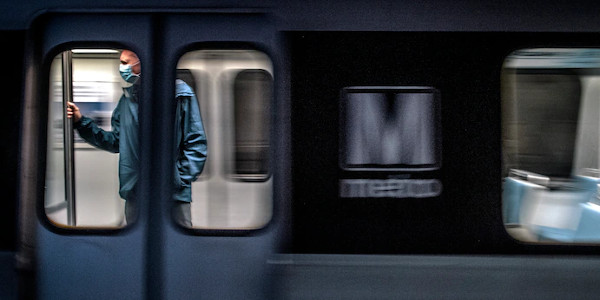
A masked passenger rides the DC Metro; Bill O’Leary/The Washington Post
THE WASHINGTON POST
Treatments will change the pandemic, but not alone | Carolyn Y. Johnson SM'04
Johnson, a leading US science reporter writes that: "Antiviral pills will be a key part of a large toolkit needed to manage the coronavirus, not a silver bullet. These treatments...will be a valuable addition to an armamentarium that the world is going to have to keep building and maintaining long term: vaccines, booster shots, more antiviral pills, virus-fighting antibodies engineered to stick around in people’s bodies, and fast turnaround testing linked to treatment options."
Story at The Washington Post | Johnson webpage
WGBH
A call for patience | Jonathan Gruber
Gruber tells 'GBH News that while it’s important that kids get vaccinated, with rare exception, children are not in high-risk categories for the virus. "There’s time for the kids to get vaccinated. In the meantime, the state needs to invest in testing, which will allow kids to go to school safely, and continue to be aggressive with that while they roll out the vaccine.”
Story at WGBH
HUFFPOST
Nursing home staffing plummeted; has yet to recover | Jonathan Gruber
“The way that nursing homes have managed to fight back the tide of bankruptcy over several decades ... is by taking on more and more short-term patients that are paid highly by Medicare,” Gruber said. “The problem is, those patients have suddenly gone away [due to the pandemic]." But even with a decrease in patients, Gruber noted, the volume of work still far outpaces available staff. The question is whether er these employees are just slow to return or if they’ve abandoned the sector.
Story at HuffPost
LINGUISTICS AND LANGUAGE
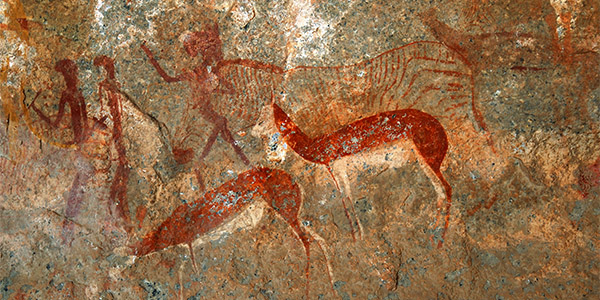
Bushmen painting, from the Namibian desert, Southern Africa
THE HISTORY CHANNEL
What prehistoric cave paintings reveal | Shigeru Miyagawa quoted
The possible connection between cave art and human language development is something Miyagawa theorized about in a 2018 paper he co-authored for Frontiers in Psychology. “The problem is that language doesn’t fossilize,” Miyagawa says. “One of the reasons why I started to look at cave art is precisely because of this. I wanted to find other artifacts that could be proxies for early language.”
Story at the History Channel | Website: Shigeru Miyagawa
CRITICAL PERSPECTIVE
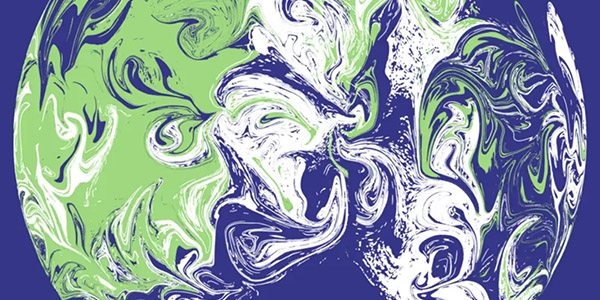
Detail, COP26 Earth. Story at McMattys: COP26 identity aims to show that climate change has no borders
CNN
Why COP26 leaves me furious—and searching for hope | John D. Sutter, KSJ Fellow
"The UN has been holding these annual meetings since the mid-1990s. For most of that time, the world's diplomats have engaged in a morbid game of "oh, we'll get to that next year." It continued this year, with nearly 200 nations literally agreeing to get the gang back together in 2022 to re-up commitments to rein in the fossil fuel pollution scorching the planet and putting all of us in danger."
Story at CNN
WIRED
Can a digital reality be jacked into your brain? | Adam Rogers, former KSJ Fellow
"Strictly speaking, this man is a cyborg. His fusiform gyri, meandering ridges that run along the bottom of the brain on each side, are studded with electrodes....A team of neuroscientists, led by MIT's Nancy Kanwisher, is investigating the so-called fusiform face area, which becomes active when a person sees a face. Their question is, what if they reverse the pumps? Intentionally activate that area—what would the man see?"
Story at Wired
THE ATLANTIC
What becoming a parent does to your happiness | Kieran Setiya quoted
"Most parents love their children, and.. you genuinely prefer a world with your kids in it. This can put parents in the interesting predicament of desiring a state that doesn’t make them as happy as the alternative. In his book Midlife, Kieran Setiya expands on this point."
Story at The Atlantic
GIZMODO
Deepfakes may not be political apocalypse we feared | Berinsky, Tappin, Wittenberg
"Ever since we’ve seen deepfakes cropping up across porn, e-commerce, and literal bank robberies, there’s always been concern that this same tech could be used to interfere with future elections. Well, according to one new study, that might be tougher than we thought. Researchers from MIT have put out a report investigating whether political video clips might be more persuasive than their textual counterparts, and found the answer is...not really."
Story at Gizmodo
DIGITAL HUMANITIES
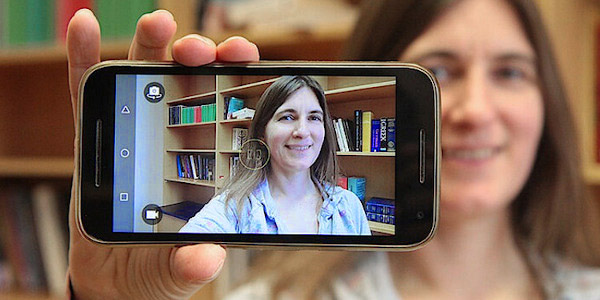
Tara Andrews ’99; photo via MIT Slice
MIT SLICE
An adept in the digital humanities | Tara Andrews '99 (History + Computer Science)
Andrews SB'99 is now a history professor at the University of Vienna and an adept in the digital humanities — a discipline that applies digital methods and tools to the study of humanities. About becoming a historian, Andrews says: “I did have to overcome my computer scientist and mathematician’s brain somewhat. It is easy to fall into the habit of thinking about history as a problem we can solve if we get enough facts. It is a problem, but it’s a different type of problem than writing code. We aren’t looking for solutions — too often the ‘reality’ is irretrievable — but we’re fitting together interpretations of what happened from whose perspective.”
Story at MIT Slice
ECONOMICS: AI, ROBOTS, JOBS, TAX POLICY, EDUCATION
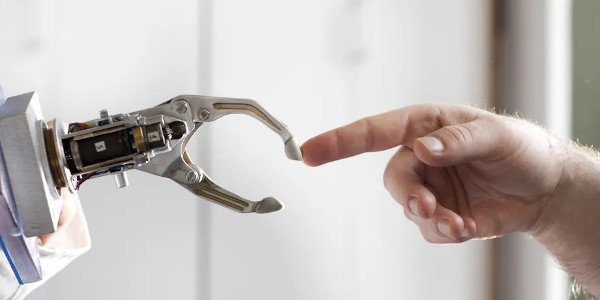
Ute Grabowsky/Photothek via Getty Images
WIRED
The Turing Test is bad for business | Daron Acemoglu
Institute Professor Acemoglu and his colleagues make the case that using the Turing test to help develop AI technologies for businesses has led to a “fundamental mismatch between the needs of business and the way AI is currently being conceived by many in the technology sector.”
Story at Wired
WGBH
On taxing billionaires and corporations | Jonathan Gruber
Gruber talked through proposals to tax billionaires and corporations, and the likelihood that they would pass in Congress.
Conversation at WGBH
BLOOMBERG
The robots are coming | Daron Acemoglu
The longer that millions of Americans linger on the sidelines of the job market, the bigger the risk that automation could make America’s income and wealth gaps worse. “If it continues, labor demand will grow slowly, inequality will increase, and the prospects for many low-education workers will not be very good,” says Acemoglu.
Story at Bloomberg
THE GUARDIAN
Most US parents struggle to find affordable preschool | Parag Pathak
Under Biden, the White House is staffed by top experts like the treasury secretary, Janet Yellen, long an advocate for how high-quality early learning can bridge socioeconomic and educational disparities. “It’s a policy that we should really focus on," said Pathak, and we should really ensure that the access is given to those who stand to benefit the most."
Story at The Guardian
AWARDS, HONORS, NEW ROLES
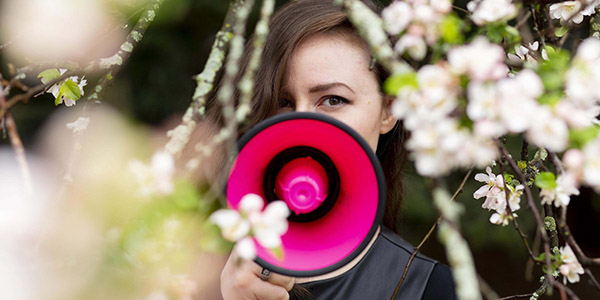
Tina Tallon; photo by Rose Lincoln; in "I Care If You Listen"
MUSIC + BIOENGINEERING
Tina Tallon '11, receives 2021-22 Rome Prize for Musical Composition
"While I’m in Rome, I’m working on an interactive multimedia chamber opera "Shrill," which will explore the social history of voice technology and how structural bias in its development continues to influence whose stories are told and how." Before earning her PhD degree, Tallon completed SB degrees at MIT in Biological Engineering and Music, where her primary composition teacher was Peter Child. She has served as a lecturer in the MIT Music program, and is currently an MIT research associate.
Interview in "I Care If You Listen" | Tina Tallon Website | 2021-22 Rome Prize
___________________________
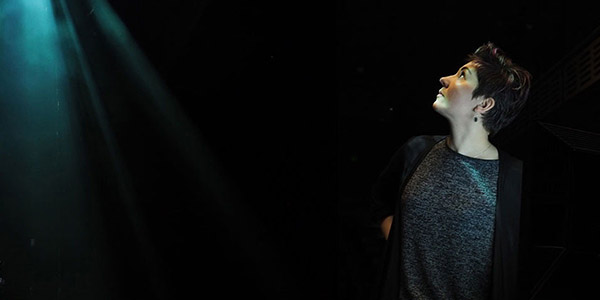
Nina C. Young '07
MUSIC
Composer Nina C. Young '07 receives a 2021 Guggenheim Fellowship
Young is equally at ease drawing from Renaissance motets and 21st-century technology to devise her sonic architectures — works that explore the relationship between space and sound. She is an assistant professor of composition at the University of Southern California, and the recipient of many prestigious commissions and honors — including a 2015-16 Rome Prize and a 2021 Guggenheim Fellowship.
Story | Young website
___________________________
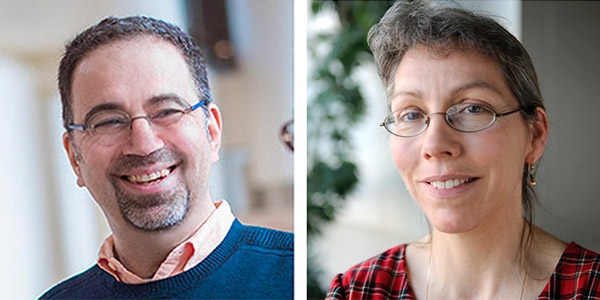
L to R: Daron Acemoglu, Institute Professor; Anne McCants, MIT Professor of History (photo by Richard Howard)
HISTORY
Anne McCants elected VP of the Social Science History Association
Elected at the SSHA's recent annual meeting, McCants will also serve as the group's President in 2023. The association is a crucial meeting ground for social scientists (quantitative and qualitative) who are interested in all things historical, broadly conceived.
Social Science History Association | Anne McCants
ECONOMICS
Daron Acemoglu joins AAAS Commission on Reimagining our Economy
The American Academy of Arts & Sciences Committee will assess the last 50 years of economic policymaking and make recommendations to create an economy that best serves the needs of all people.
About the Project | Daron Acemoglu
___________________________
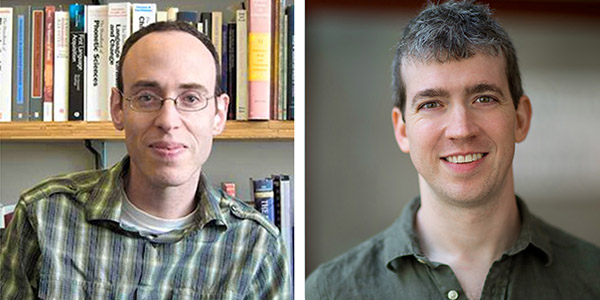
L to R: Adam Albright, Professor of Linguistics; Arthur Bahr, Associate Professor of Literature
LINGUISTICS + LITERATURE
Linguist Adam Albright is MIT CUP chair, succeeding literary scholar Arthur Bahr
Following Associate Professor of Literature Arthur Bahr, Adam Albright, Professor of Linguistics, is the new chair of the MIT Committee for the Undergraduate Program for the 2022-23 term. One of the Institute's most significant committees, the CUP exercises oversight for the undergraduate academic program, which includes encouraging innovation in undergraduate education. We salute both Professors Bahr and Albright for giving so generously of their time, expertise, and insight in this service to the Institute.
MIT Committee on the Undergraduate Program | Adam Albright | Arthur Bahr
___________________________
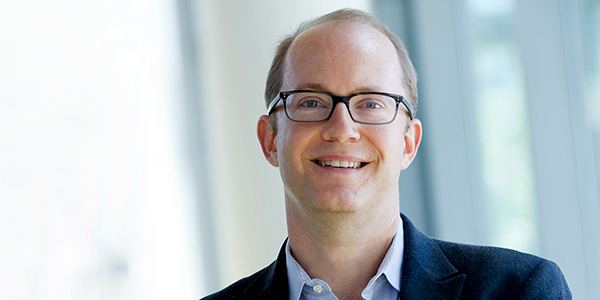
Evan Lieberman, Total Professor of Political Science and Contemporary Africa; photo by Stuart Darsch
MISTI | CENTER FOR INTERNATIONAL STUDIES
Evan Lieberman named faculty director of MISTI
"The Center is thrilled to announce that Evan Lieberman, Total Professor of Political Science and Contemporary Africa, is the new faculty director of the MIT Science and Technology Initiatives (MISTI), effective 1 November 2021. In this role, Lieberman will continue to steer and nurture MIT’s international research and teaching opportunities for current students and into the future."
Full Story at CIS
___________________________
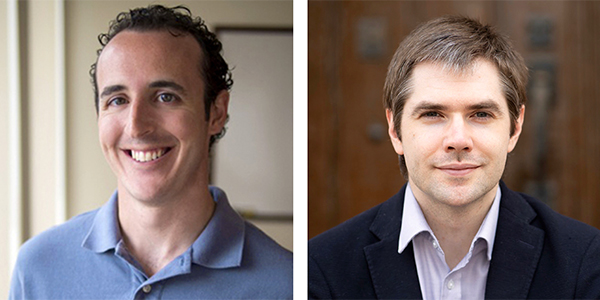
L to R: Andrew Miller PhD '20, Political Science; Tristan Brown, Assistant Professor of History
POLITICAL SCIENCE
Andrew Miller PhD'20 wins the 2021 IASOC thesis award
Miller, now an Assistant Professor in the Political Science department, U.S. Naval Academy, receives the award for his thesis "The Information Game: Police-citizen cooperation in communities with criminal groups" from the International Association for the Study of Organized Crime. Learn about Miller's concept of "Risk Inflation" and how it is working in cities like Baltimore and Lagos.
About The Information Game | Andrew Miller
HISTORY
Tristan Brown wins grant from the Geiss Hsu Foundation
The award will support a manuscript workshop for Assistant Professor Brown’s forthcoming book, Laws of the Land: Fengshui and Administration in Qing China. Brown is a social and cultural historian whose research focuses on the ways in which law, science, environment, and religion interacted in China from the seventeenth to early twentieth centuries.
About the grant | Tristan Brown
___________________________
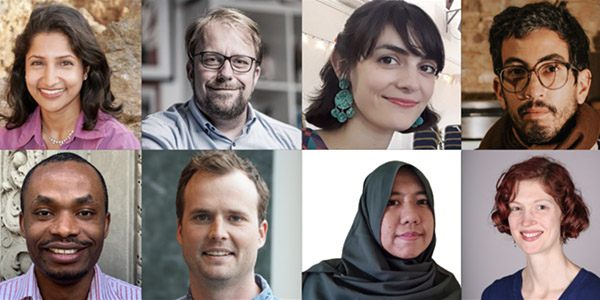
Profiles on the KSJ website
KNIGHT SCIENCE JOURNALISM AT MIT
Congratulations to the 2022-23 KSJ Fellows
These 8 talented journalists will join us next August for an in-person fellowship that was deferred due to the pandemic. While at MIT, they will explore a great range of topics including: neuroscience, AI, childhood cognitive development, the impact of climate change on freshwater ecosystems, and the use of algorithms in health and criminal justice systems.
Meet the New Fellows | Profiles
PUBLICATIONS DIRECTORY
A Convenient, One-Page Portal
Here you will find all the online channels, newsletters, and publications produced by the School's 20+ departments, sections, programs, and centers. Look for current research, news, and commentaries from each of the MIT SHASS fields.
Visit the Publications Directory
The Media + Awards Digest is a section
of Said and Done, the School's online digest.
EXPLORE
Follow MIT Now
Updates on the return to campus
Subscribe to Said and Done
10 issues a year
Making a Better World | Research
Browse
Making a Just Society
Explore the Resources
Solving Climate
Browse the Commentaries | MIT Climate Portal
Ethics, Computing, and AI
Full Series
Computing and AI | Humanistic Perspectives
Full Series
Perspectives for the Pandemic
Explore the Series
SHASS on MIT News
Research and Features
MIT Campaign for a Better World
Story | Join Us
Published by MIT SHASS Communications
Office of the Dean, MIT School of Humanities, Arts, and Social Sciences
Editor and Designer: Emily Hiestand
Publication Associate: Alison Lanier
Media Relations Manager: Stephen Oakes
Published 29 November 2021




